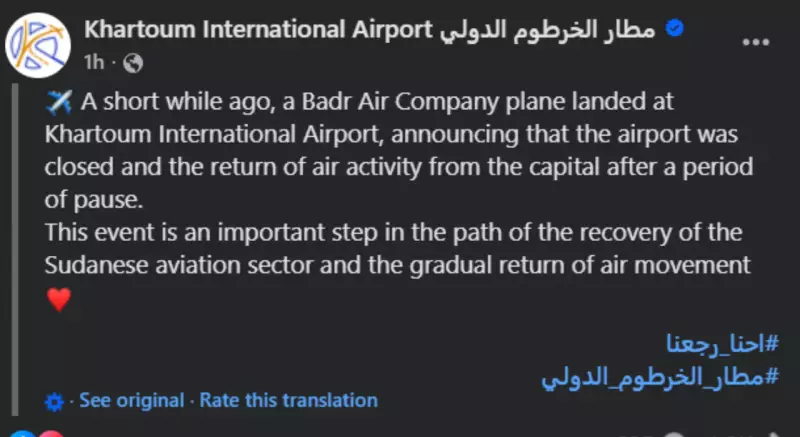
In a remarkable display of resilience, Sudan's primary aviation hub has taken a tentative step toward recovery. Khartoum International Airport, silent for over two and a half years, has officially resumed domestic flight operations despite ongoing security challenges that have plagued the nation.
A Long-Awaited Return to Skies
The airport's reopening comes after an extensive 30-month closure that began in April 2023 when violent clashes between the Sudanese Armed Forces and Rapid Support Forces paralyzed the country's aviation sector. The resumption, though limited to domestic routes initially, represents a significant milestone in Sudan's difficult journey toward restoring basic infrastructure.
Security Challenges Persist
The path to reopening hasn't been smooth. Recent drone attacks in the capital region temporarily disrupted the carefully orchestrated restart plans, highlighting the fragile security situation. Aviation authorities have implemented enhanced security protocols and are operating with extreme caution, prioritizing passenger safety above all else.
What This Means for Sudan
The resumption of air travel offers multiple benefits for the conflict-weary nation:
- Humanitarian Access: Improved transportation for aid workers and medical supplies
- Economic Boost: Reconnection of domestic trade routes and business travel
- Civilian Mobility: Safer travel options for citizens moving between regions
- Symbolic Importance: A psychological victory demonstrating progress toward normalcy
The Road Ahead
While domestic operations have recommenced, international flights remain suspended indefinitely. Aviation officials indicate that expanding to regional and international routes will depend entirely on improving security conditions and completing necessary infrastructure assessments. The current focus remains on maintaining consistent domestic service while ensuring passenger and crew safety amid the challenging environment.
This cautious reopening serves as a testament to the determination of Sudanese authorities to rebuild critical infrastructure despite formidable obstacles, offering a glimmer of hope for a nation struggling to emerge from prolonged conflict.





